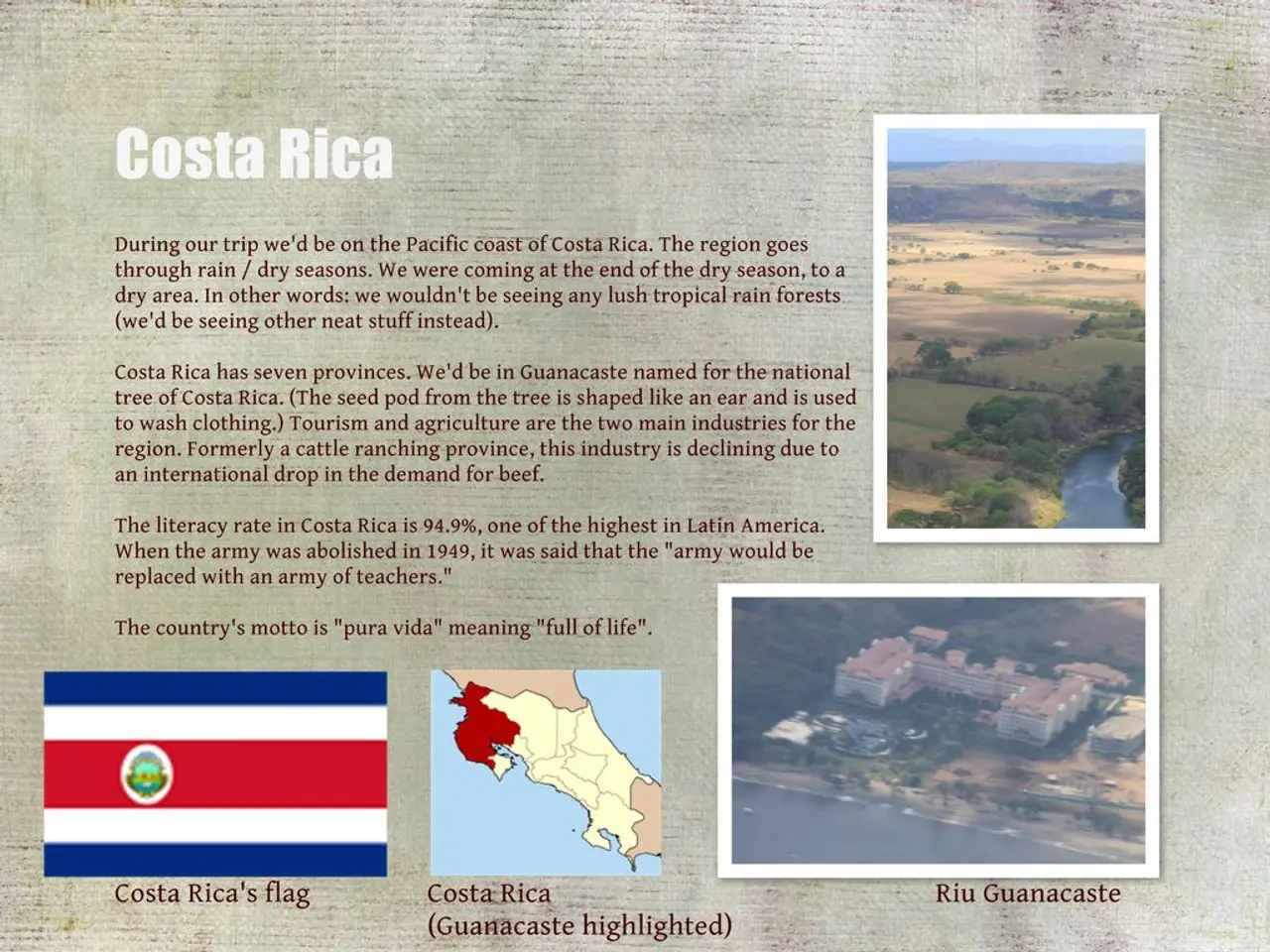U.S. representative dispatched to monitor food aid deliveries in Gaza strip
The humanitarian situation in the Gaza Strip is reaching a critical point, with international organizations warning of an imminent famine. Germany, along with the international community, has been increasingly vocal in its criticism of Israel's actions and has pushed for a ceasefire to alleviate the crisis.
Gaza has been on the brink of famine for the past two years, and recent developments have exacerbated the situation. The United Nations Secretary-General António Guterres and over 100 aid organizations have urged Israel to lift restrictions and facilitate unhindered aid flow to prevent the unfolding famine and humanitarian catastrophe.
The humanitarian aid situation in Gaza is currently dire and insufficient to meet the rapidly worsening needs caused by prolonged conflict and strict aid restrictions. About one-third of the population goes without food for days at a time, and hospitals are overwhelmed with malnourished children. At least 16 children under five have died from hunger-related causes since mid-July 2025. More than 2 million people in Gaza are fully dependent on food assistance, with repeated displacement worsening their vulnerability.
Efforts to alleviate the crisis are ongoing but severely constrained. Since reopening border crossings in May 2025, some humanitarian aid—such as over 48 million pounds of food delivered by the World Food Programme—has reached Gaza, but this represents only a fraction of the estimated 135 million pounds of food needed monthly to address extreme hunger. Aid convoys face multiple bottlenecks, including delays up to 46 hours for permissions, slow travel due to damaged infrastructure and checkpoints, and crowds gathering along limited routes, complicating logistics.
Israel’s military has announced “tactical pauses” and opened humanitarian corridors for aid convoys since late July, but aid delivery remains tightly controlled and limited largely to groups operating under close Israeli oversight. International and Israeli officials express concerns about aid being diverted by Hamas, complicating the delivery process.
In an effort to save lives and end this crisis, U.S. President Donald Trump's special envoy Steve Witkoff arrived in Israel on July 31. Witkoff met with Prime Minister Benjamin Netanyahu to discuss the humanitarian situation and a possible ceasefire. Witkoff and U.S. Ambassador Mike Huckabee will inspect food distribution in Gaza on Aug. 1.
Despite the airdrops of food aid, the amount getting into Gaza remains far lower than the 500 to 600 trucks per day that aid organizations say are needed. Scenes of desperation and chaos played out as scores of Palestinians ran toward food aid dropped from the air. However, not all aid distribution has been smooth. Eslam al-Telbany, a displaced woman from Jabalia, was attacked and bitten while carrying food aid, and Ahmed al-Khatib broke a tooth in a struggle over food aid.
German Foreign Minister Johann Wadephul arrived in Israel on July 31 for a two-day trip that includes the Israeli-occupied West Bank. Wadephul has been vocal in his support for a two-state solution and has not yet said that Germany will recognize a Palestinian state in September, but he believes that a two-state solution is "the only way" to ensure peace and security for both sides.
As the situation in Gaza continues to deteriorate, the international community, including Germany and the United States, is increasing pressure on Israel to facilitate aid delivery and work towards a ceasefire. The "worst-case scenario of famine is currently playing out in Gaza," according to international organizations, highlighting the urgent need for action.
- Amidst the ongoing war-and-conflicts in Gaza, politics and general news have been dominantly focused on the humanitarian crisis, with the United Nations Secretary-General António Guterres and over 100 aid organizations urging Israel to lift restrictions and facilitate unhindered aid flow to prevent an imminent famine.
- In line with Germany's vocal criticism of Israel's actions, Foreign Minister Johann Wadephul's two-day trip to Israel includes discussions on the humanitarian situation in Gaza and the need for a ceasefire, underscoring the importance of politics in addressing this conflict and preventing the unfolding famine and humanitarian catastrophe.






